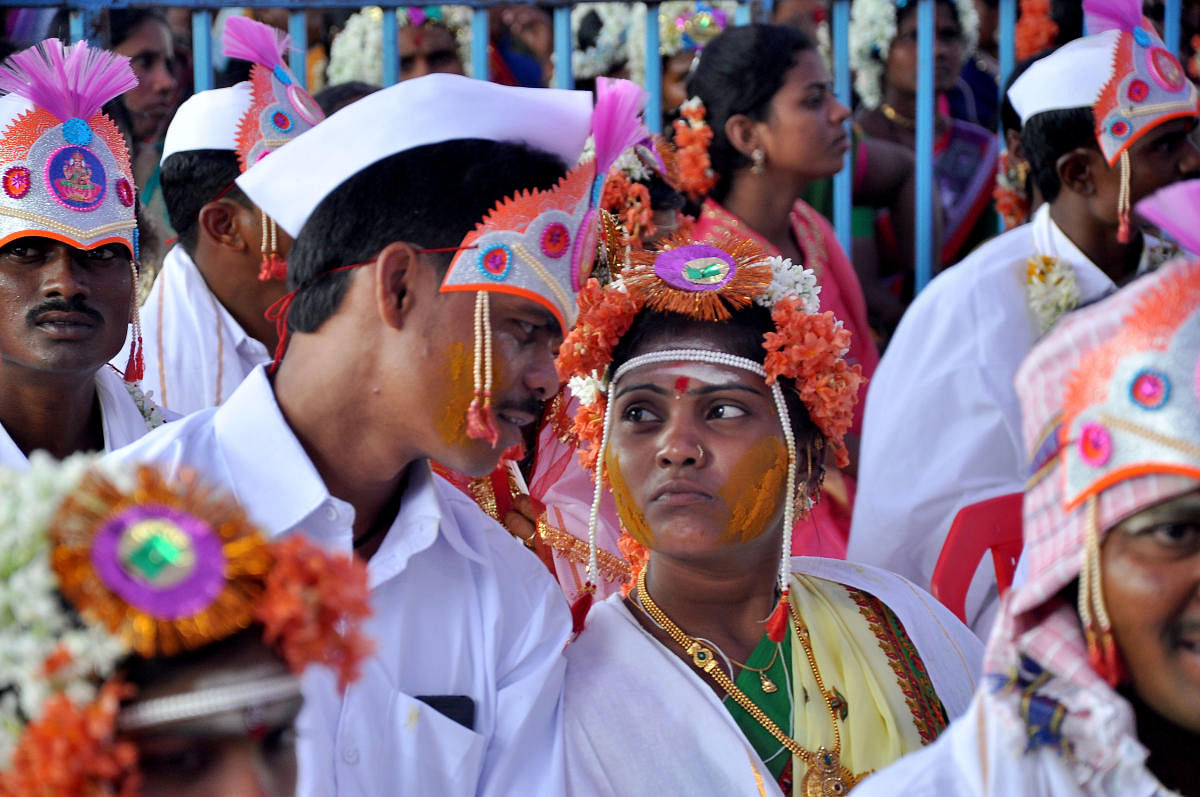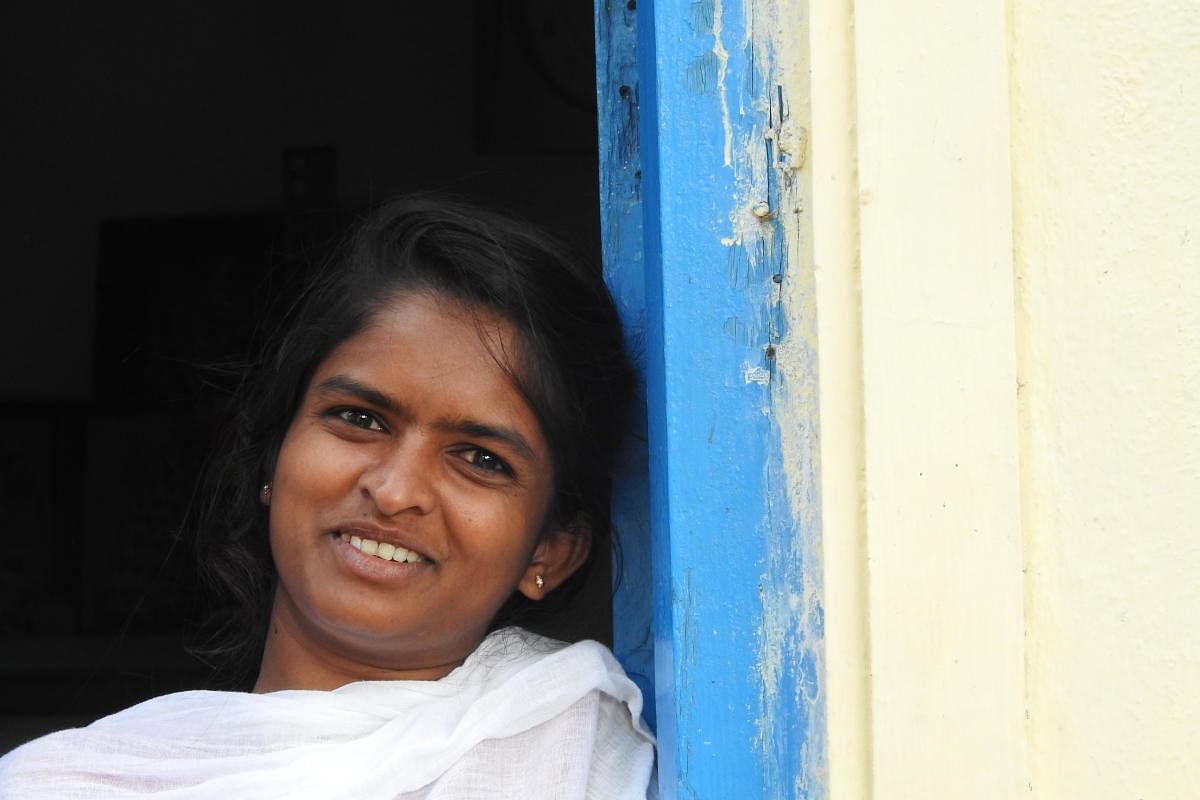
Is marriage a solution to our problems? Or should we consider it as the goal of our life?” Jainashree, daughter of a Devadasi, said in exasperation as one of her friends mentioned the government’s unrealised promise of financial assistance of Rs 5 lakh and Rs 3 lakh for the marriage of female and male children of Devadasis respectively. DH was discussing the challenges faced by Devadasi children with a few of them who are carving their own identity and are working with other Devadasi families in Hospet taluk. “What is the guarantee that marriage brings us a life of dignity? Have we not seen people who back out just because our mothers are Devadasis?” Jaina’s irritation stems from the fact that being happier after marriage is often a mirage for Devadasi children. Marriage-related problems are just the tip of the iceberg of the multitude of challenges these youngsters face.
The children go into their shell early in life because society treats them indifferently by calling them names and suspecting their character. And the fact that they can’t identify themselves with the father takes an emotional toll on them. The situation of the girl children is precarious because any man in the village or even an outsider might ‘like’ her and force the family to dedicate her to god. Such people are considered ‘patrons’, they arrange the dedication ceremony and get the ‘rights’ over her.
Under-researched area
Poverty, lack of family support, social stigma and ostracisation compel these children to quit school even before they reach high school. A recent sample survey shows that over 48% of Devadasi children are illiterates. With a lack of awareness about family planning and due to blind beliefs, Devadasis generally have many children, ranging from two to 12, sometimes with multiple partners. While earning a single meal a day is a challenge for many families, children, like elders, get used to snuffing tobacco powder to satiate their hunger.
In addition, the children have to shoulder the responsibility of managing the family at a young age because of the mother’s ill health. Forty is generally the beginning of declining years for a Devadasi and many get addicted to alcohol to cope with the mental and physical trauma.
Jaina, one of the few Devadasi children to have completed graduation, put her life back, piece by piece. From her mother’s compulsion to change partners to how she as a teenager resented the fact that her mother was a Devadasi, and her responsibilities towards the alcoholic mother and two siblings, she explains everything, putting on a brave face. “I can’t afford to dream of my future,” she says.
“I had to quit my education after PUC as I didn’t know how to apply for scholarships. In some places, mentioning farther’s name is mandatory. How do we explain our situation to those who don’t know about the system? And people hesitate to even offer jobs to Devadasi children,” says Shivaraj of Uchangidurga.
The problem of Devadasi families is an under-researched area, and only in recent years, there have been efforts to understand their plight. Arun Kumar, president Karnataka Rajya Devadasi Mahileyara Makkala Horata Samiti, puts forth education, skill development, cultivable land, shelter and employment opportunities as key areas where support is essential.
There are rays of hope, though. Some children like Jaina have guided their families on the path of economic empowerment and social reintegration, with support from voluntary organisations. One such effort took the lead in the drafting of Devadasi Bill 2018. It all started in 2014, when Rajendra Y J, a Bengaluru-based professor, realised the need for people from the Devadasi families to stand up for themselves. He initiated a central government-funded action research in Koppal district and formed a team of people with Devadasi lineage for the same. “They were trained to gather information and to do surveys. I knew that the output will be superficial if we outsiders interview them as they don’t open up easily,” Rajendra says.
The research was brought out in the form of a book authored by Manjula Malgi, a Devadasi’s daughter. This effort eventually led to the formation of Vimukta Devadasi Mahileyara Vedike in Kushtagi, with Chandulinga, Yamanurappa and Padiyamma as key members. The forum organised the mass marriage ceremony of Devadasi children recently. “A series of consultations held at all the 14 districts ensured that Devadasis and their children actively participated in the drafting of the bill. This has made the bill comprehensive. We have been following it up the government and are still waiting for its next move,” say Chandrashekar R V and Pradeep Ramavath of Talasamudayagala Adhyayana Kendra, who were also the legislation’s drafting committee members.
